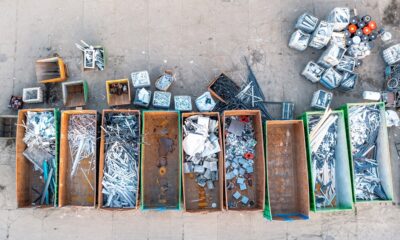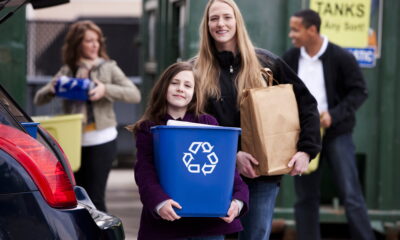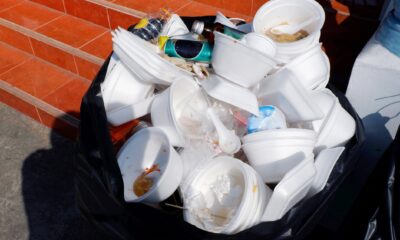Here is some food for thought: a grim nine-tenths of all waste generated in the United States does not get recycled, and we typically recycle only 30% of what is considered recyclable waste. Moreover, tons of our paper, cardboard, and plastic waste come from offices—to give you some perspective, the average American office worker can accumulate as much as 500 used coffee cups in one year.
If you don’t want your office to be on the bad side of these statistics, then you should make an effort to “go green.” Here are seven of our best recycling tips to get you started.
- Establish central recycling areas. The truth is, most employees don’t think too much about how much waste they generate individually. One thing you can do is to gradually remove the personal trash bins located under their desks, and direct them to labeled trash bins in an accessible corner of the office. This will make them think twice about how many items they throw away in one day, as well as to practice waste segregation together.
- Label receptacles for different types of waste. On the subject of waste segregation, it’s also a good idea to distinguish between recyclables. Provide separate bins or boxes for paper, aluminum, plastic, and glass materials in the recycling areas. This will make the transfer to the landfill much easier, as well as reduce clutter.
- Be smarter with printing your documents. There are several ways to reduce waste, and yet maintain efficiency in the office with your documents. Choosing remanufactured ink for your printer’s cartridges is convenient and accessible, and won’t compromise the print quality of your documents. You should also choose to organize clean sheets of recycled paper and print on both sides. These practices will definitely have a better impact on your paper waste, as well as lessen plastic, ink, and oil consumption on the part of manufacturers.
- Collect and recycle e-waste. You can opt to inspire a group effort among your employees to collect electronic waste from both their homes and the office. E-waste includes old wires, batteries, plugs, gadgets, and the like. Encourage everyone to de-clutter their living and working spaces and to safely donate to e-waste recyclers.
- Advocate accessible repair services for gadgets. Not all broken gadgets are beyond saving, however. Repairing old drones, cameras, speakers, and the like will be much cheaper for the office budget. Make it standard operating procedure in the tech or creative departments to seek out repair facilities before buying anything new.
- Set up a separate waste station in the office kitchen. A lot of waste that comes from offices are food waste, such as soiled plastic and paper bags, coffee cups, utensils, and food scraps. For hygienic purposes, set up a proper waste disposal system in the office kitchen or pantry. Here, you can make sure that the organic waste doesn’t mix with the recyclable waste. Also enjoin your employees to reduce single-use plastic or paper products in general, and not to waste food.
- Set aside shelf space for an upcycling station. Are the corporate giveaways piling up or gathering dust in drawers? Make an upcycling station, or a group repository for unused office supplies such as stationery, tape, pens, pencils, and the like. This will help your employees clean out their workstations for supplies they don’t need, and share them among their officemates. This also minimizes the need to spend anew on brand-new supplies.
Successfully “greening” your office might entail a few efforts, but as demonstrated in this list, not all of them are difficult. It will be a matter of counter the waste-generating habits with more mindful ones, and fostering an office environment where it is easier to be kind to Mother Earth.































